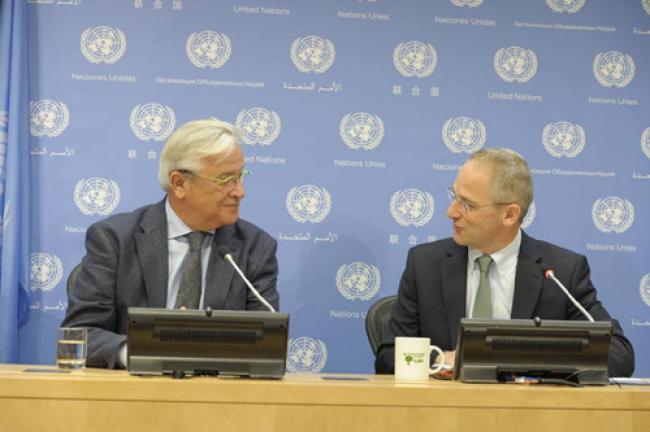10 Dec 2013, 06:01 pm Print

“One of the main aspects in urbanization is to diminish the level of inequality because it presents a new set of social challenges,” the Executive Director of the UN Human Settlements Programme (UN-Habitat), Joan Clos, told journalists at UN Headquarters in New York.
Those include diminished security, Clos said, which is apparent in areas such as gated communities: “When we need to bring walls inside our own community to protect us from the rest, this is a clear symbol that something is not doing well.”
The world population is expected to grow in absolute terms between 2.5 and 3 billion in the next 30 years with 96 per cent of the growth in developing countries, the UN official said.
“What we have done in all of human history we will nearly do in the next 30 to 40 years. It’s a huge change rate,” Clos said, noting that the current population is estimated at 7 billion.
Half of the world’s population lives in urban areas, and a third of them are in slums and informal settlements. By the year 2050, over 70 per cent of the world’s population will be living in cities, according to UN-Habitat figures.
How to create cities that are more dense, compact, and inclusive to reduce inequalities and reclaim public space as a common good for all citizens is among the topics to be discussed at the World Urban Forum (WUF7) in Medellin, Colombia, between 5 and 11 April 2014, on the theme of ‘Urban equity in development – Cities for life.’ “This is an occasion… for UN-Habitat to listen to academia, local authorities, [the] private sector and NGOs [non-governmental organizations] and all of them come with a list of aspects to be dealt with,” said Clos.
During next year’s conference, participants will share ideas, which will be collected and submitted to government officials for debate and consideration the following year.
The Forum will be held as governments and partners speed towards progress on the anti-poverty targets known as the Millennium Development Goals (MDGs), and finalize a global development agenda beyond the target date for the Goals, which is 2015.
Executive Director of the UN Human Settlements Programme (UN–Habitat) Joan Clos (left) briefs journalists. UN Spokesperson Martin Nesirky is at right. UN Photo/Eskinder Debebe
- Why is Nissan recalling 640000 vehicles? Check all details
- Microsoft appoints Asha Sharma as Gaming CEO. Who is she?
- Is your screen job about to vanish? Top AI expert warns that the shift has already begun
- Tesla strengthens China presence with AI training centre launch: Reports
- AI blamed for thousands of job cuts as U.S. employers slash 108,000 positions in January





-1763561110.jpg)
